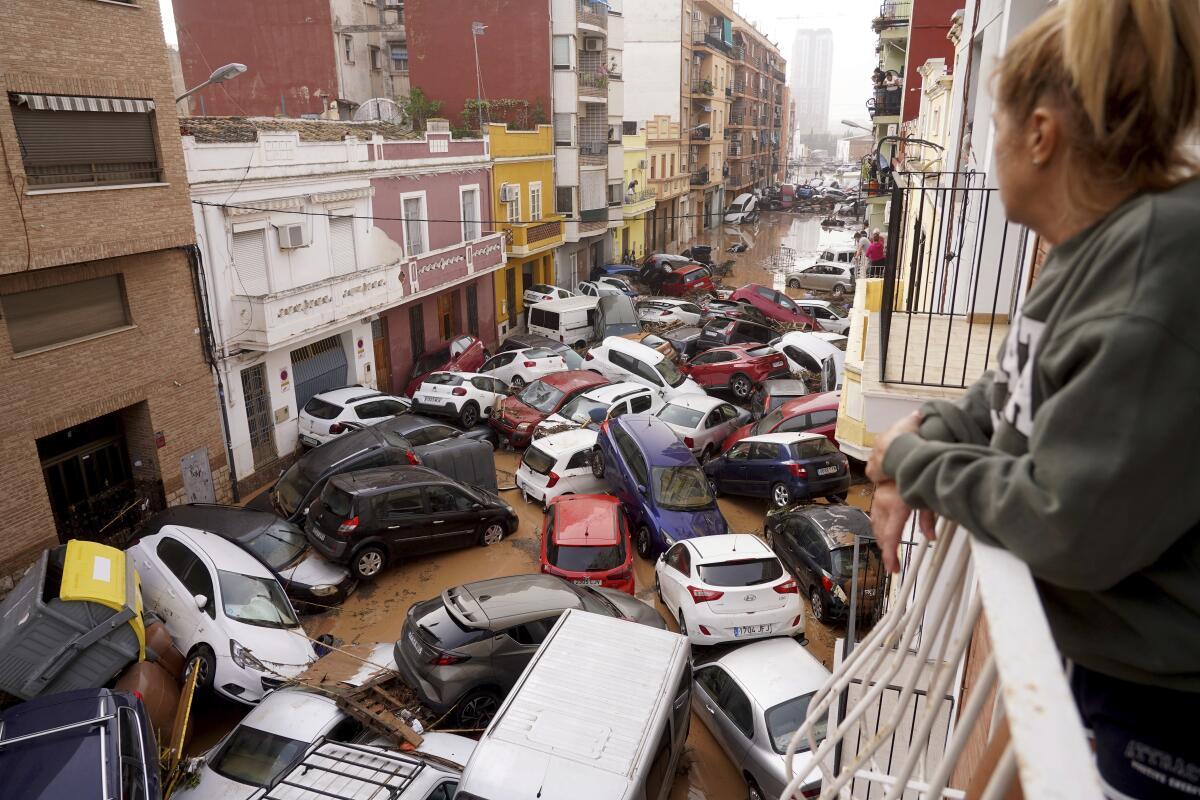Spain is currently grappling with its most devastating flooding disaster in decades, triggered by torrential rains that have left at least 95 people dead and many more missing. The extreme weather began on Tuesday, primarily affecting the eastern province of Valencia, where flash floods obliterated infrastructure, including bridges and buildings.
This catastrophic event has forced individuals to seek refuge on rooftops or in trees as they attempted to escape the rising waters. In response to the tragedy, Prime Minister Pedro Sánchez has declared three days of national mourning while rescue efforts continue, albeit hampered by the ongoing severe weather conditions.
The flooding has caused significant loss of life, with the majority of the fatalities occurring in Valencia, where at least 92 deaths have been confirmed. Other casualties include two individuals in Castilla-La Mancha and a British man in Málaga who succumbed to his injuries after being rescued.
The current death toll marks the worst flooding disaster in Spain since 1973, raising concerns that it may continue to rise as search and rescue operations proceed. The government has expressed its fears regarding the large number of missing persons, emphasizing the urgency of the situation.

Spain Faces Deadly Flooding Crisis as Torrential Rains Claim Lives and Displace Thousands
In a heartfelt address to the nation, Sánchez assured the public that the government is committed to a full recovery and urged citizens to remain vigilant. He acknowledged the widespread suffering caused by the floods, stating that “the whole of Spain weeps with you.”
The impact of the storm has been particularly severe in towns near Valencia, such as Chiva, which experienced an entire year’s worth of rainfall within just eight hours. Survivors have recounted harrowing experiences of the floods, describing how roads transformed into rivers and how they struggled to escape rising waters.
Despite the tragic circumstances, there has been widespread criticism regarding the response from disaster relief authorities. Reports indicate that the civil protection agency delayed issuing warnings until after many towns had already been inundated.
Additionally, the regional government has faced scrutiny for dismantling the Valencia Emergency Unit, which had been established to address natural disasters. Although Spain has mobilized over 1,000 troops to assist in rescue operations, many rescue teams remain stranded due to inaccessible roads and downed communication lines.
Meteorologists attribute the severe weather to a natural phenomenon known as “gota fría,” which occurs when cold air descends over warmer Mediterranean waters.
However, the increasing severity of such events has been linked to climate change, which has caused a rise in global temperatures and increased the capacity of the atmosphere to hold moisture. Experts emphasize that the current situation serves as a stark reminder of the pressing need for significant reductions in emissions to mitigate future climate-related disasters.
